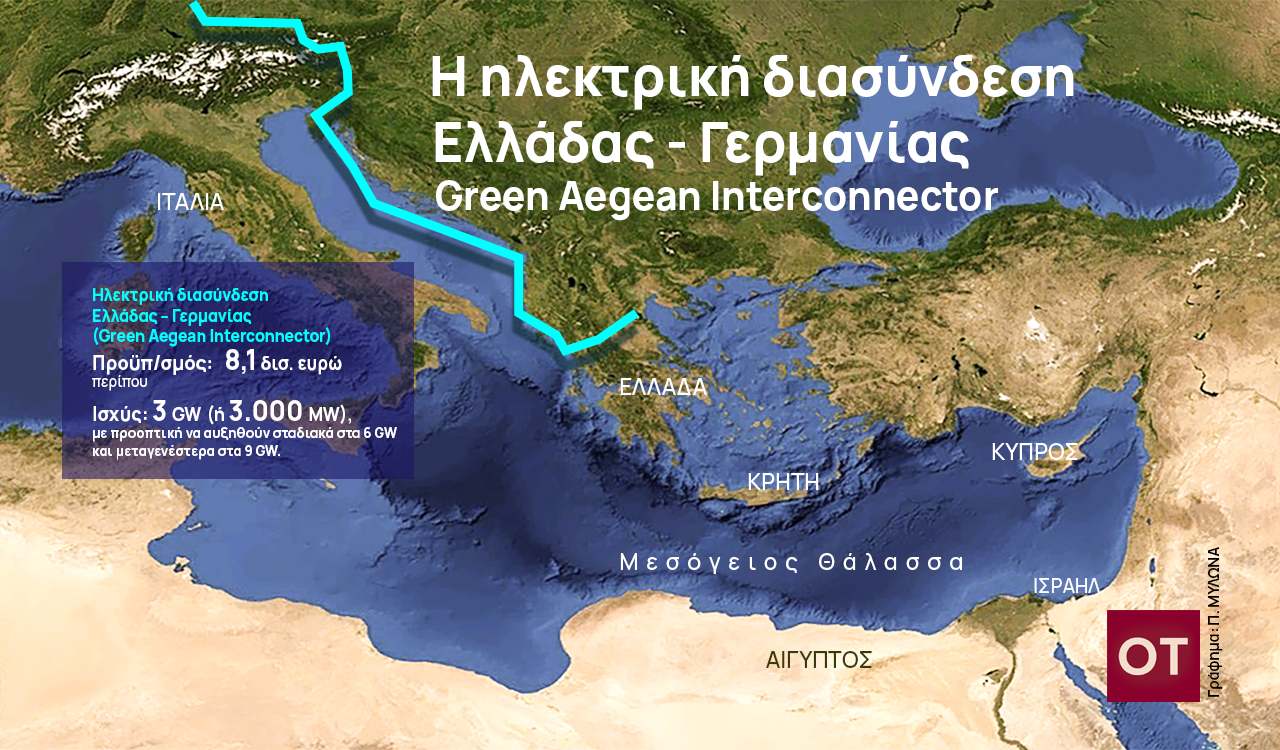
Asignificant revival of the Green Aegean Interconnector, the ambitious energy link between Greece and Germany, appears to be underway following the German elections and the near-certain appointment of Christian Democrat Friedrich Merz as chancellor.
The Green Aegean Interconnector aims to transport surplus wind energy from the Aegean to Central Europe’s industrial hubs. According to sources, the project has re-emerged on Germany’s investment agenda, with Austrian construction giant Strabag leading the initiative on the German side.
German sources indicate that beyond Greece’s Independent Power Transmission Operator (IPTO), major Greek business groups are also likely to participate, having already engaged in preliminary discussions.
The mega-project was included in IPTO’s Preliminary Ten-Year Development Plan for 2025-2034 and has been mapped by ENTSO-E among Europe’s key electricity transmission projects for the next decade. The estimated budget stands at 8.1 billion euros, with completion targeted for late 2035.
Once the feasibility study is finalized, discussions with transmission system operators from Austria, Slovenia, and Germany will resume in 2025 to determine the route options and finalize decisions.
The initial route has been set to pass through the Adriatic Sea, avoiding detours through the Western Balkans or Croatia. From Slovenia, the interconnector will extend northward to Austria before reaching Germany and its industrial hub in Munich.
However, this does not rule out the possibility of smaller connections being developed along the way to integrate other Balkan markets. Notably, Croatia’s transmission system operator (HOPS) has recently initiated discussions with IPTO and other regional counterparts about the possibility of joining the project.
Meanwhile, on the Greek side, Grant Thornton is conducting a preliminary feasibility study on behalf of IPTO to assess the viability of the Greece-Germany interconnection.
Source: Tovima.com
Latest News

Hellenic Food Authority Issues Food Safety Tips for Easter
Food safety tips on how to make sure your lamb has been properly inspected and your eggs stay fresh.

Greek Kiwifruit Exports Smash 200,000-Ton Mark, Setting New Record
According to data by the Association of Greek Fruit, Vegetable and Juice Exporters, Incofruit Hellas, between September 1, 2024, and April 17, 2025, kiwifruit exports increased by 14.2%.

Easter Tourism Boom: Greece Sees 18.3% Surge in Hotel Bookings
Among foreign markets, Israel has emerged as the biggest growth driver, with hotel bookings more than doubling—up 178.5% year-on-year.

Greece to Launch Fast-Track Tender for Offshore Hydrocarbon Exploration
Last week, Papastavrou signed the acceptance of interest for the two Cretan blocks, while similar decisions regarding the two Ionian Sea blocks were signed by his predecessor

American-Hellenic Chamber of Commerce to Open Washington D.C. Branch
AmCham's new office aims aims to deepen U.S.-Greece economic ties and promote investment and innovation between the two countries

Why Greece’s New Maritime Spatial Plan Is a Geopolitical Game-Changer
This landmark development is more than just a bureaucratic step — it's a strategic declaration about how Greece intends to use, protect, and assert control over its seas
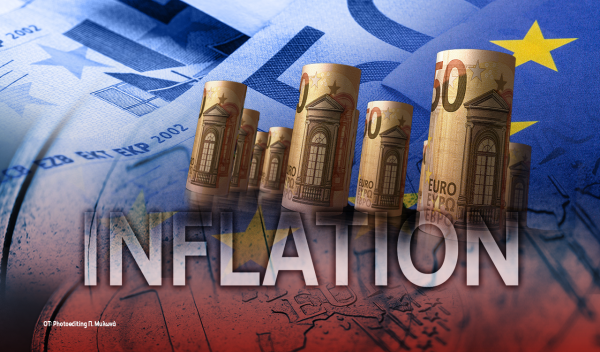
Eurozone Inflation Eases to 2.2% in March
Compared to February, inflation decreased in 16 member states, remained unchanged in one, and rose in ten.

Bank of Greece: Primary Gov. Surplus €4.1b Jan.-March 2025
The data released today by the Bank of Greece revealed that the central government’s overall cash balance recorded a surplus of €1.465 billion in the first quarter of 2025, compared to a deficit of €359 million in the corresponding period of 2024.

Greek Government Reissues 10-Year Bond Auction for €200 Million
The amount to be auctioned will be up to 200 million euros, and the settlement date is set for Friday, April 25, 2025 (T+5)

Greece Defines Continental Shelf Limits and Maritime Zones in Landmark EU Document
The Maritime Spatial Planning (MSP) framework represents a comprehensive approach to spatial planning and is crucial for the successful development of a blue and circular economy








![Πλημμύρες: Σημειώθηκαν σε επίπεδα ρεκόρ στην Ευρώπη το 2024 [γράφημα]](https://www.ot.gr/wp-content/uploads/2025/04/FLOOD_HUNGRY-90x90.jpg)


















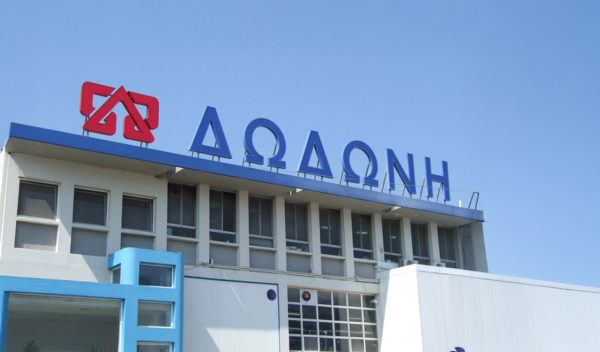
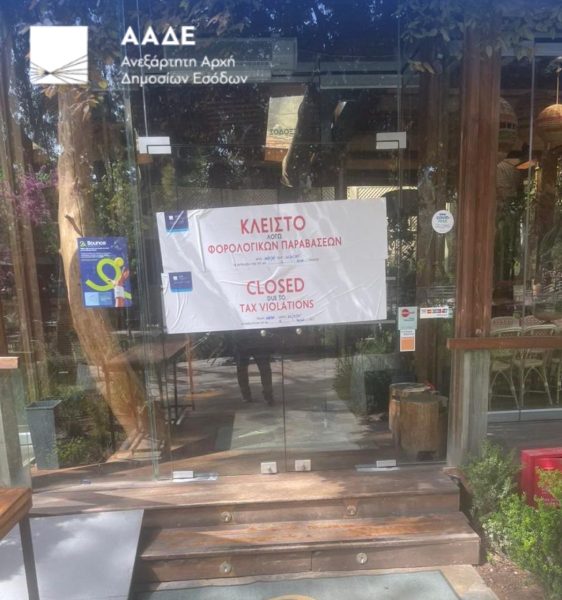




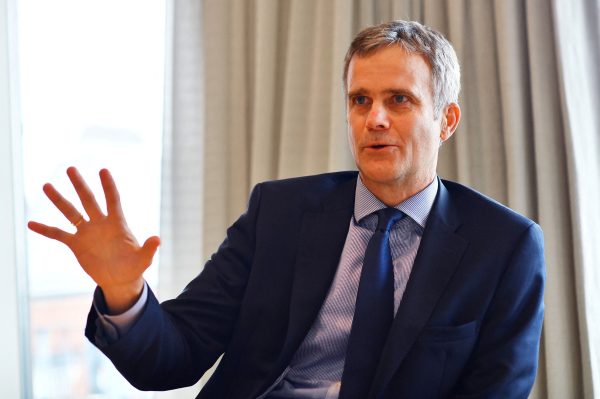

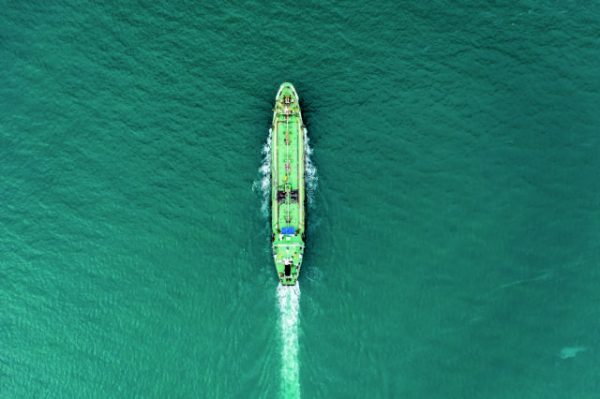



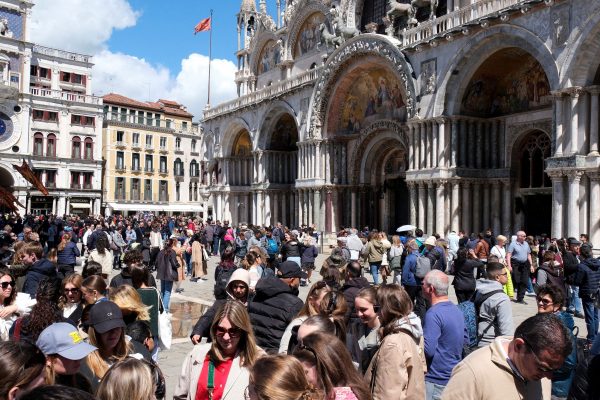


 Αριθμός Πιστοποίησης
Αριθμός Πιστοποίησης